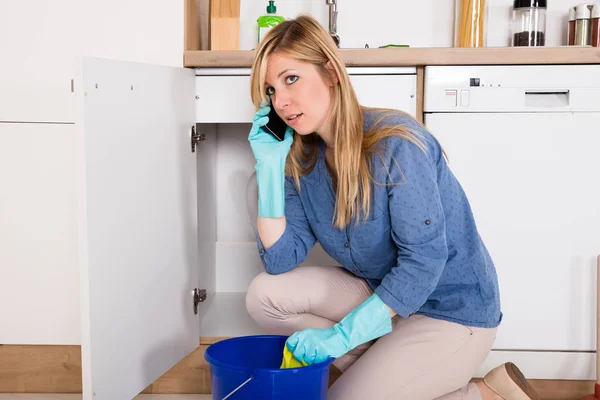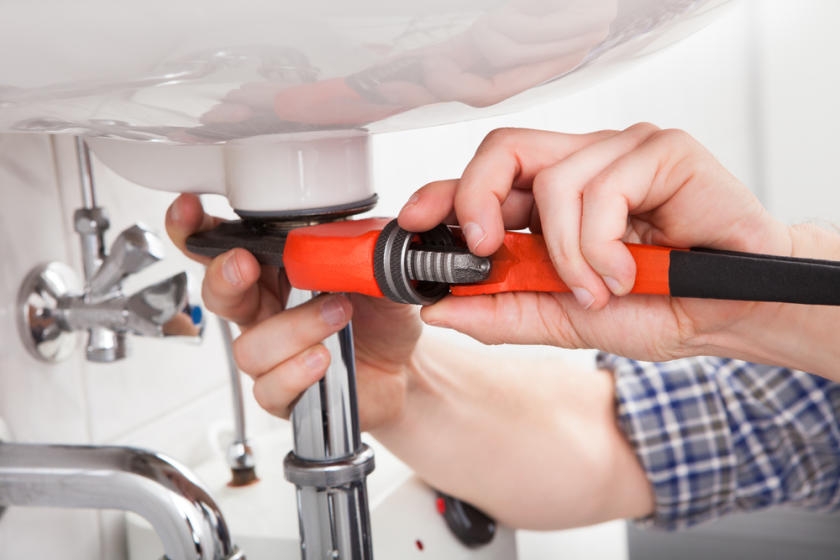Critical Fixes: Steps to Manage Issues Until Support Arrives
Critical Fixes: Steps to Manage Issues Until Support Arrives
Blog Article
Almost everyone maintains their own unique theory in relation to What to Do During a Plumbing Emergency.

Plumbing emergencies can strike at any time, causing tension and prospective damage to your home. Whether it's a burst pipe, a blocked drain, or a leaky faucet, knowing how to manage the situation till a specialist plumbing professional gets here can conserve you from more issues. This post supplies vital emergency plumbing tips to help you minimize damages and gain back control during a plumbing crisis.
Switch off the Water
The primary step in any type of plumbing emergency is to shut down the water system. For localized issues, such as a dripping tap or bathroom, turn off the shutoff near the component. In the case of a major leakage or ruptured pipe, situate your home's primary water shut-off valve and turn it off quickly. Understanding the location of these shutoffs in advance can save valuable time throughout an emergency.
Shut down Your Hot Water Heater
In certain emergency situations, such as a ruptured pipe, it's important to turn off your hot water heater. This protects against getting too hot or damages to the system when water stops flowing. Switch off the power supply to the hot water heater (electric or gas) and let it cool down to stay clear of possible dangers.
Briefly Stop a Ruptured Pipeline
A burst pipe can bring about considerable water damage in mins. To alleviate the problem:
Call a professional plumbing technician quickly to deal with the trouble permanently.
Have an Emergency Pipes Kit
Prepare a fundamental pipes emergency set to take care of minor problems properly. Your kit must consist of:
Having these devices on hand can make a considerable distinction in your capacity to manage emergencies.
Unclog Drains Pipes Securely.
A clogged up drain can be an aggravating and untidy concern. Below's how to tackle it:.
If these methods don't function, stay clear of making use of excessive force, as it may aggravate the clog.
Manage Overflowing Toilets.
An overflowing bathroom can trigger prompt disorder. Here's what you ought to do:.
Address Small Leaks with Temporary Fixes.
Small leaks can swiftly end up being considerable issues if left unattended. Use these short-term repairs up until expert assistance arrives:.
While these solutions aren't long-term, they can help decrease water loss and damage.
Take Care Of Frozen Pipeline Carefully.
In cooler environments, frozen pipelines are a typical emergency. If you suspect an icy pipe:.
Know When to Call an Expert.
While quick fixes can aid briefly, certain pipes issues call for immediate specialist attention. Call a plumbing professional if:.
Promptly calling a professional makes sure the concern is fixed properly and protects against more complications.
Avoid Additional Damages.
Taking fast activity to minimize damage can save you time and money over time. Right here's exactly how:.
Verdict.
Pipes emergency situations can be frustrating, yet with the appropriate expertise and devices, you can handle the circumstance successfully up until assistance shows up. By shutting off the supply of water, dealing with small leaks, and using short-lived solutions, you can lessen damages and keep your home safe. Remember, these tips are temporary remedies; constantly seek advice from an accredited plumbing to deal with the root cause of the trouble. Prep work and quick thinking are your finest allies in any pipes emergency situation.
8 Helpful Tips for Managing Plumbing Emergencies at Home
If your plumbing system hasn’t failed once, wait for it because almost everyone has a story to tell. Sometimes, it could be simple emergencies such as a leaking pipe, a blocked cistern, or even a big burst pipe. In situations like this, you need to have some handy tips to save you some money and from possible damages.
Take care of minor issues early.
Sometimes, you could have avoided an emergency by taking proactive measures while it was still early. Some major plumbing emergencies can be a result of an ignored minor issue. We recommend that you have items like plumbing tapes and other related items. A plumbing tape can allow you to manage minor leaks before the plumber arrives.
Cut off the water supply.
This tip is essential in almost any type of leakage problem. For problems like minor leakages in the toilet or kitchen, turn off the supply that takes water to the affected pipes. If the leakage is a major pipe, you must shut off the supply valve to the entire building. This will help you avoid flooding your home and neighbors if you share a flat.
Know your plumbing system
Folks typically move into a new apartment without understanding the water supply around the building. This can prove disastrous if a water emergency arises and the plumber is far away. The previous tip will prove useless if you don’t practice this one. More importantly, know where your water shut-off valve is located – you’ll need that knowledge to prevent potential home floods.
Have some common handy tools
There are lots of plumbing emergencies that you can handle without hiring a plumber. That’s why you must keep some tools available always. Some tools that you can use to fix simple plumbing emergencies easily include plumbing tapes, screwdrivers, thread seal tapes, plungers, pliers, tape measures, and rubber gloves.
Insulate your pipes from cold
You’ll save yourself from many plumbing expenses if you protect your water pipes from the cold. This is because of the harmful effects that cold weather can have on your pipes. During winter, your pipes can burst from being overly expected to freezing temperatures. So, make sure insulators are there to keep the pipes working correctly.
Avoid practices that will clog your toilet.
Many people indulge in practices that can damage the plumbing system of the entire building. One of these is when they use their toilet to dispose-off garbage. They flush all kinds of things, such as paper towels, bandages, hairs, female sanitary products, etc., down the toilet. This will block your toilet in the long run, incurring unnecessary expenditures. Dump such waste in the trash instead.
Check your dials regularly.
Sometimes, there could be leakages in your home without noticing them in time. So, constantly monitor your water meter dial. If the dial is reading when there is nobody using water, this is an indicator that there is leaking. Check for leaks immediately. Call a plumber as soon as possible if you can’t find any.
https://www.constructionplacements.com/8-helpful-tips-for-managing-plumbing-emergencies-at-home/

Do you appreciate reading about What to Do While Waiting for an Emergency Plumber? Put feedback directly below. We'd be happy to listen to your thinking about this blog. In hopes that you visit us again soon. Don't hesitate to set aside a second to distribute this blog entry if you appreciated it. Thank you for going through it.
Get A Free Quote Report this page